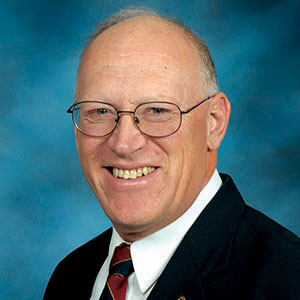Kansas Profile – Now That’s Rural: Clay Wallin, Heartland Game Birds
Aug. 10, 2022
By Ron Wilson, director of the Huck Boyd National Institute for Rural Development at Kansas State University
![]()
This Kansas business is for the birds – gamebirds, that is. Today we’ll meet a young ruralpreneur who has created a business of raising pheasants and guiding pheasant hunts in his home region of rural Kansas.
Last week we learned about Bethany Wallin, who founded a physical therapy and fitness center in her community of Courtland. Today we’ll meet her husband and learn about his business.
At right: (l to r) Bethany Wallin, Clay Wallin, Nathan Lindberg and Shanna Lindberg | Download this photo
Clay Wallin and his friend Nathan Lindberg are owners of Heartland Game Birds. Wallin and his wife are from Republic County originally. Clay went to K-State and earned degrees in golf course management and agronomy before he and Bethany were married. He worked in crop seed sales in Kansas and Nebraska. For six years, they lived in Manhattan.
In 2018, Bethany took a position at the hospital in Belleville and they moved to Clay’s hometown of Courtland. Clay became an independent Channel seedsman and raised corn and soybeans.
Clay also joined his boyhood pal Nathan Lindberg and another friend in creating a pheasant business. “We grew up pheasant hunting together,” Wallin said. He remembered the excitement of the beginning of pheasant season. “Opening weekend was better than Christmas for me.”
Because of their location in the heartland of the nation, they named their business Heartland Game Birds. Today, they raise thousands of pheasants, lease many acres of farmground for hunting, provide guided hunts, and have even opened a hunting lodge in Courtland.
“We aim to provide (customers) with the best upland hunting experience the Heartland has to offer,” the website states.
“We raise our own birds,” Wallin said. “This year we’ll raise 11,000 birds, and our goal is to get to 25,000.”
Heartland Game Birds raises and sells birds by contract to others in addition to their own local use. “The guided hunts are growing,” Wallin said. “Our goal is to double the number of hunts each year.”
During busy times, two other individuals help Wallin and Lindberg guide groups of hunters.
In 2020, the business purchased a historic downtown building that had been built in the 1890s. “It was one of the first buildings in Courtland,” Wallin said. They gutted and remodeled the building which has become their hunting lodge. It operates as an Airbnb, but during the busiest part of hunting season from November through February, the lodge is reserved for hunters only.
For the hunters, they provide home-cooked meals and will clean, process and vacuum package the birds.
“I’m a huge hometown supporter,” Wallin said. “I want to see more vehicles on Main Street and draw people to downtown. This old building helps us tell the story. Every customer we have asks about the history of the place.”
For many people, part of the experience is reconnecting with the memory of a time when they might have gone hunting with a dad or grandpa. “Usually there’s one in every crowd that grew up doing this, and now they’re wanting to share it with other people,” Wallin said. “There’s a camaraderie to the hunt. Our greatest joy is helping bring back good memories for them.”
He adds: “This is a people business. We’re tailored to the smaller groups so we can build relationships. It’s fun to meet people from other walks of life. We’ve made friends and great connections.”
Repeat customers have been a foundation of the business as it has grown. Many customers have come from the east coast. “We’ve had people from Florida, Washington DC, California, Utah, Wyoming, Michigan, North Carolina,” Wallin said.
During the recent pandemic, business actually increased as people wanted to get away from the crowded cities.
It's an impressive record for a business based in the rural community of Courtland, population 294 people. Now, that’s rural.
For more information, go to www.heartlandgamebirds.com.
This business is for the birds – for gamebirds by the thousands, that is, and that’s a good thing. We commend Clay Wallin and Nathan Lindberg for making a difference by using the great outdoors to create positive memories for their customers. These birds got game.
Audio and text files of Kansas Profiles are available at http://www.kansasprofile.com. For more information about the Huck Boyd Institute, interested persons can visit http://www.huckboydinstitute.org.
***
The mission of the Huck Boyd National Institute for Rural Development is to enhance rural development by helping rural people help themselves. The Kansas Profile radio series and columns are produced with assistance from the K-State Research and Extension Department of Communications News Media Services unit. A photo of Ron Wilson is available at http://www.ksre.ksu.edu/news/sty/RonWilson.htm. Audio and text files of Kansas Profiles are available at http://www.kansasprofile.com. For more information about the Huck Boyd Institute, interested persons can visit http://www.huckboydinstitute.org.


